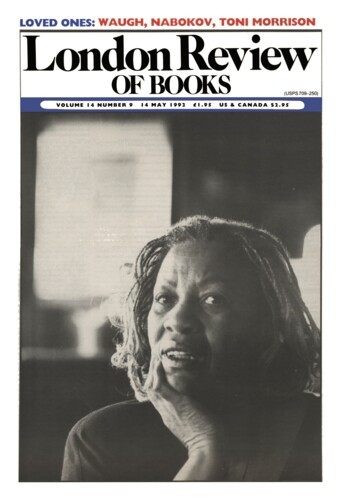He saw the photo on the Sunday,
started writing on the Monday
how the dead Iraqi spoke
like Palinurus or that bloke
in ‘Strange Meeting’: you’ll have read
before about the talking dead –
no problem then for this charred head,
except for how and what it said,
for when it leant into his mike
it sounded like a pissed-off tyke,
it sounded like his loiner dad,
someone a world away from Baghdad,
his windscreen wiper like a biro
he’s reaching for to sign a giro.
It seemed obsessed with sperm banking
and accused the yanks of wanking –
though spilling sperm’s a minor guilt,
compared to all the blood they spilt
and this was just a metaphor
of the poets you’ll have read before:
The Waste Land and D.H. Lawrence
express symbolic abhorrence –
linking fruitless sexual practices
with decadence and cactuses;
they say we can’t now ripen our oats
(this isn’t literal – see the ‘Notes’).
But notions so Weston sound all wrong
from that burned and foreign tongue,
whose last thoughts surely were a far cry
likewise from ‘epiphany’ –
that writer reaching for his pen,
the cold coming and the three wise men.
And if you interview a charred head
(‘How does it feel, then, being dead?’)
let him speak in his own voice,
not like a Yorkshireman or James Joyce.
That photograph and its violence
sit in an alien silence
where a fraught polyphony
might speak, but not epiphany –
transcendent insights that replace
missed moments of religious grace
are not just missing but unmissed
as a quill in a cindery fist
in that least meaningful of wars
made cosier by these metaphors.
Dead Eliot, Lawrence and James Joyce
could characterise a voice,
suggesting a sound reflective
of another’s distinct perspective –
this was what was needed to suggest
the gulf between that head and the West:
how sounds happened in him – speech and song,
the foreign landscape of his tongue.
Send Letters To:
The Editor
London Review of Books,
28 Little Russell Street
London, WC1A 2HN
letters@lrb.co.uk
Please include name, address, and a telephone number.

